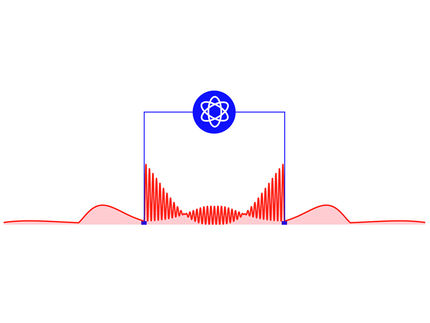Team creates new method to control quantum systems
Advertisement
Dartmouth College researchers have discovered a method to design faster pulses, offering a new way to accurately control quantum systems.
Quantum physics defines the rules that govern the realm of the ultra-small - the atomic and sub-atomic world -- which explains the behavior of matter and its interactions. Scientists have been trying to exploit the seemingly strange properties of this quantum world to build practical devices, such as ultra-fast computers or ultra-precise quantum sensors. Building a practical device, however, requires accurately controlling your device to make it do what you want. This turns out to be challenging since quantum properties are very fragile.
"Ideally, you would like to come up with a method to control the device accurately even in the presence of uncertainties and errors," says co-author Chandrasekhar Ramanathan, an assistant professor of physics and astronomy.
One way to achieve this is through the use of adiabatic pulses, a class of amplitude- and frequency-modulated pulses that are used extensively to enable robust control of quantum operations. In quantum physics, an adiabatic process is one in which the configuration of a system is changed gradually enough so that the system is able to respond to the changes without being excited to higher energies. The drawback to using these adiabatic pulses is that they are typically very slow.
The Dartmouth team investigated a new class of faster adiabatic pulses that still retained the property of being insensitive to small errors.
"We came up with a systematic method to design fast adiabatic pulses, using only the controls that an experimenter may have available in the laboratory, thus offering a new way to accurately control quantum devices," Ramanathan says.
Original publication
Other news from the department science

Get the chemical industry in your inbox
By submitting this form you agree that LUMITOS AG will send you the newsletter(s) selected above by email. Your data will not be passed on to third parties. Your data will be stored and processed in accordance with our data protection regulations. LUMITOS may contact you by email for the purpose of advertising or market and opinion surveys. You can revoke your consent at any time without giving reasons to LUMITOS AG, Ernst-Augustin-Str. 2, 12489 Berlin, Germany or by e-mail at revoke@lumitos.com with effect for the future. In addition, each email contains a link to unsubscribe from the corresponding newsletter.






























































